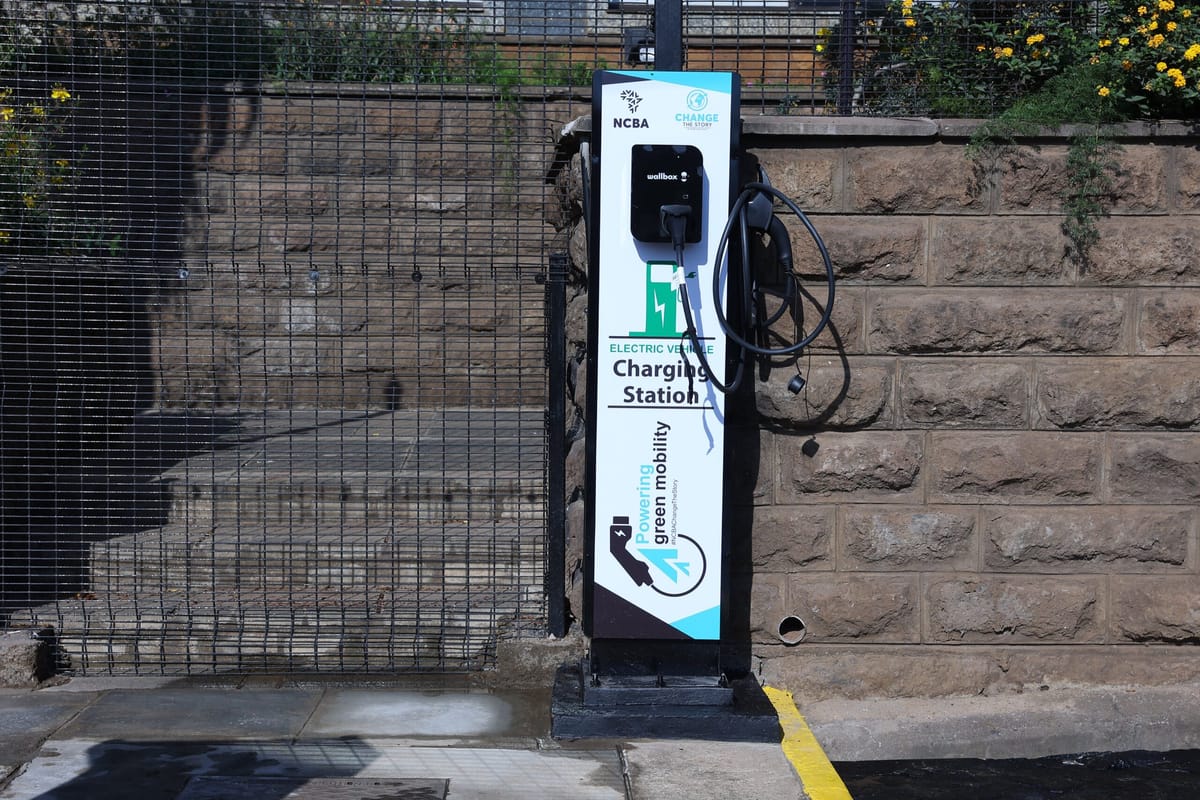Major EV drive sees Kenya ramp up charging infrastructure
With companies like Moja EV Kenya, Simba Corp, TotalEnergies, and NCBA leading the charge, the country is set to witness a significant increase in EV adoption

Kenya is striding towards clean energy by doubling down on its electric vehicle (EV) charging infrastructure, as it aims to enhance the uptake of EVs and support the country’s transition to clean and sustainable transportation.
On Friday, July 12, 2024, Moja EV Kenya, a Chinese-born firm, began rolling out commercial charging stations across the country. Wang Aiping, CEO of Moja EV Kenya, said the 80 KW DC fast charging stations are designed to provide convenience for motorists relying on electricity.
“Our goal is to have 100 charging stations spreading across Kenya by the end of the year,” Aiping stated. These stations are capable of charging EVs to full capacity within 15 to 30 minutes, significantly reducing downtime and increasing driving range.
As per the Energy and Petroleum Regulatory Authority, Kenya had 3,753 EVs as of December 2023, accounting for 1.62 percent of the vehicles registered in the country.
Maurice Njagi, an industrial development officer at the Ministry of Investments, Trade and Industry, emphasized that Kenya has implemented policies to incentivize the deployment of EV charging infrastructure. Charging stations receive preferential electricity tariffs due to their contribution to the green transition.
Simba Corp, a major player in the Kenyan automotive market, has also ventured. On July 10, 2024, the company sold two all-electric Mahindra XUV 400 SUVs to Kenya Power at a cost of Ksh9 million ($70,000) each. Dinesh Kotecha, CEO of Simba Corp, revealed plans to add four more units to the electricity distributor later this year.
“We have recently introduced our passenger vehicle range from Mahindra, and sales have commenced. We have received numerous inquiries from prospective customers eagerly awaiting delivery,” Kotecha said. Simba’s expansion includes the electric versions of some existing internal combustion engine models, reflecting a broader market shift towards electric mobility.
TotalEnergies Marketing Kenya (TMK) has expanded its EV charging network. As of July 8, 2024, the company operates 13 charging stations across its retail network.The company partnered with three EV firms—Ampersand, Roam, and Arc Ride—to increase its charging capabilities from three locations to 13 within a year.
“Leveraging our network of service stations, we have opened 13 EV sites in 2023 compared to three in 2022, providing convenient access to battery charging and swapping points for electric motorbike customers,” TotalEnergies stated in its annual report.
The expansion caters to the rising count of EVs registered, which saw a fivefold increase in 2023. Data from the Energy and Petroleum Regulatory Authority indicates that 2,694 EVs were registered in 2023, compared to 475 in the previous year, marking significant progress in EV adoption.
NCBA, one of East Africa’s largest banks, has also gotten in on the action by installing EV charging stations at its head office in Upper Hill, Nairobi. This initiative, launched in September 2023, is part of the bank’s broader sustainability drive under its ESG framework, themed “NCBA Change The Story.”
The new 22kW AC charging stations, installed in partnership with EvChaja, are available for customers and staff. NCBA Group MD John Gachora highlighted the bank’s commitment to deploying EV charging stations across the East African region. Additionally, NCBA plans to finance electric mobility through a two billion Kenya shilling initiative, supporting the sector’s growth.
NCBA’s broader efforts include a group-wide carbon audit, reducing direct emissions by over 50% by 2030, and aligning with the 2015 Paris Agreement to reduce financed emissions. The bank also aims to grow ten million trees by 2023, eliminate single-use plastics, recycle all waste by 2030, and green its supply chain.
Also, Kenya's National Building Code 2024 requires the owners of malls, factories, gated communities and apartment to reserve no less than 5% of parking space for EV charging stations. This initiative, among others, places the market at the cusp of Africa's electric vehicle drive.






